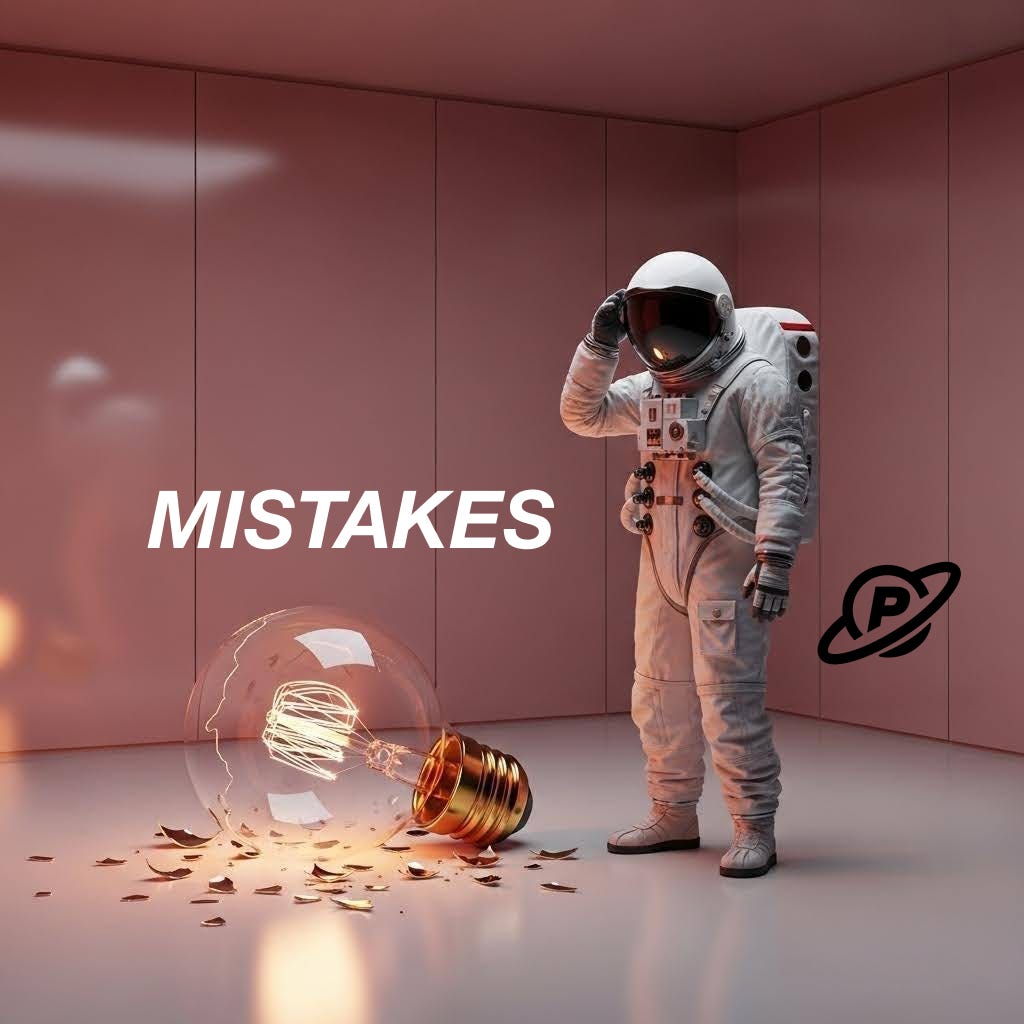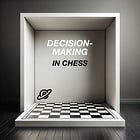Make Mistakes Cheap, Not Rare — Art of Making Mistakes
The shifted perspective on making mistakes.
I'm at the train station with my friends. We are coming back from a tech conference. But our train is not on the departure screen. I'm confused!
I checked the printed tickets that I bought for all 3 of us. Our train left a day ago, a typical off-by-one error made by a developer. I had to buy new tickets, but thankfully, we didn't wait long for the next train.
It cost me money and the pain of admitting my mistake. Now, 9 years have passed, and my relationship with making mistakes has changed completely.
Perception
Since childhood, I was convinced that mistakes are deeply negative things, and it felt like it. I'm a well-organised manager, so how can I buy tickets for the wrong day?
I remember this particular case because, for a few weeks after, it was still a painful memory, and I didn't want to talk about it. Since then, I check all the dates a few times, on anything I'm booking. I haven't picked the wrong dates (yet).
Simplified timeline of feelings about the mistake you made:
The key is to go to the Laughter stage as soon as you can.
Make Mistakes “Cheap”
Because of the negative feelings involved, we want to avoid making mistakes. The consequences of our mistakes depend on their potential reversibility and their cost.
You need to know where you can experiment. The key is to make mistakes “cheap" (lower their cost) and embrace them when they happen as a learning opportunity.
Great perspective presented by Shane Parrish (Brain Food no. 641):
People think good decision-making is about being right all the time.
It's not.
It's about lowering the cost of being wrong and changing your mind.When the cost of mistakes is high, we're paralyzed with fear.
When the cost of mistakes is low, we can move fast and adapt.Make mistakes cheap, not rare.
This applies to learning environments, creative work, and reversible decisions — not safety-critical or irreversible situations.
Practice — Individual Level
If you want to have a humbling and intense experience with mistakes: Try chess.
I started playing chess because I was scared of it. But also to learn how to deal with making a dozen mistakes every single game, among other interesting lessons:
In chess, you win by making fewer mistakes than your opponent. Every time you play, you will make many mistakes, categorised by the computer as inconsistencies, mistakes or blunders. The last category immediately makes your position destined to lose. The key is to analyse each game and get slightly better each time.
Trying and making many mistakes works for other learning opportunities: Adam Grant, in Hidden Potential, points out that the best way to learn a new language is to relentlessly practise speaking it with other people as soon as you can. While beginners make countless mistakes doing this, it is the fastest way to learn a new one. It's the default method for people who speak a number of languages fluently.
Practice — Organisation Level
Well-functioning organisations rely on continuous improvement and innovation. But you can't get far and move fast without making mistakes. Playing it all safe can keep you growing, but not that fast.
When the Mercedes F1 Team was winning the championship several years in a row, I heard an interview with the team principal, Toto Wolff, in which he mentioned that he starts every team meeting by talking about his own mistakes.
This lowers the bar because leaders can openly admit their own mistakes, then everyone can. People are much more willing to admit mistakes if leaders set an example by doing so themselves.
Admitting mistakes in public can strengthen the sense of belonging and acceptance within a group, as we are showing some of our vulnerabilities.
On timing (Tiny Thoughts, No. 593):
There are two times to admit mistakes: early and late.
Early admissions solve problems.
Late admissions create them.A person who proactively tells another they made a mistake gains trust and respect for their honesty.
In contrast, one who tries to hide errors quickly loses trust.Swift admissions build bridges. Slow ones burn them.
Improv Cheering for Mistakes
Two years ago, I took part in an applied improv workshop, which was defined as lessons from improvisation applied to work and life situations. One session was dedicated to shifting perspective on making mistakes.
An environment where it is okay to make mistakes is the key to improvisation. It helps with creativity and removes the doubt of whether we should say or do something. You need to get rid of the feeling of being judged.
During the exercise, we were in a circle playing a numbers game in which one by one we repeated an increasingly difficult sequence of numbers. It was so difficult that everyone made a few mistakes each round.
But something extraordinary happened when we were told to cheer loudly with positive energy when others were making mistakes. You don’t expect to hear any positive encouragement after you did something wrong.
After a few rounds, our miscalculations were no longer something shameful. They became neutral and accepted. It even felt good to say wrong numbers out loud, like we were rewarded when making mistakes.
This kind of support and encouragement is important if we want to experiment or spark creativity.
Summary
You can't plan to make mistakes, but you can plan to learn from them.
It wasn't easy to admit my own mistakes in the past, but now it feels natural. The key is to focus on learning from them.
What did you learn from yours?
Thanks for reading!
— Michał
P.S. Make Million Mistakes — an amazing chapter from my favourite book, How to Live.
P.P.S. It's a refreshed version of an article from Feb 2024, with updated perspectives and writing, when the newsletter was delivered to 180 people. It’s 2,120+ now, thanks for subscribing!
Post Notes
Discover Weekly — Shoutouts
Articles that might help you explore new perspectives, which I’ve read recently:
A Fake Tech Company Scam: Here's How I Caught It in Time by Kjartan Manvelyan and Gregor Ojstersek
10 simple internal tools any EM can build in under 2 hours by Anton Zaides
The hidden career risk of being a "helpful" data engineer by Yordan Ivanov
Connect
LinkedIn | Substack DM | Mentoring | X | Bsky





I like your approach to mistakes, Michał. Was there a moment or experience that made you start seeing them as opportunities rather than setbacks?
We talk about “learning from mistakes” like it’s optional. But honestly, the bigger mistake is pretending you didn’t make one.
📌 Denial is the only blunder you can’t recover from.
⬖ Reframing errors as upgrades at Frequency of Reason: bit.ly/4jTVv69